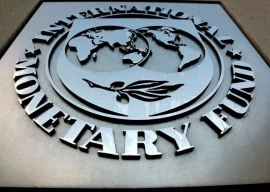
A third of Pakistanis have no access to birth control, a senior UN official said on Wednesday, as he urged the country to allocate more resources to family planning to slow rapid population growth.
Pakistan’s population is growing by 2.05 percent a year and has reached the 180 million mark, making it the sixth most populous country in the world, Rabbi Royan, United Nations Population Fund (UNFPA) chief in Pakistan said.
Many couples who want to have fewer children have no access to contraceptives or family planning advice, he said, with the unmet need for birth control running at 33 percent.
“It is important that provincial and federal authorities demonstrate their full commitment through sustained and prioritised allocation of additional resources to family planning services and commodities,” Royan said.
Royan advised the government to observe the clear linkages between birth-spacing, development and the benefits of slower population growth.
“If the current fertility rate persists, Pakistan may lose the opportunity to benefit from the demographic dividend,” he added.
The issue of family planning was “extremely relevant” to Pakistan as the fertility rate remains very high as every mother on average gives birth to four children, he added.
This year’s global report from UNFPA focuses on the theme: “By Choice, Not by Chance: Family Planning, Human Rights and Development.”
“The report shows clearly that family planning delivers immeasurable rewards to women, families, and communities around the world,” said Royan.
Furthermore, he said that even though it had become complicated for UN bodies to get connected with the provincial units after the passage of 18th Amendment – as many of the projects are still implemented by the federation due to transparency-related issues – consultation with the provinces for a number of projects had kicked off.
Speaking on cultural and religious constraints in Pakistan, the Royan said the UN body is engaging cultural icons and religious leaders to remove inhibitions that hinder the success of family planning programmes in Pakistan.
Contraceptive prevalence has increased globally by just 0.1 per cent per year over the last few years, according to the report.
Pakistan had its last head count in 1998, which put the population at 132 million, and the government is working on a new population and housing census, according to the Population Census Organisation website.
(With additional input from AFP)
Published in The Express Tribune, November 15th, 2012.































COMMENTS
Comments are moderated and generally will be posted if they are on-topic and not abusive.
For more information, please see our Comments FAQ